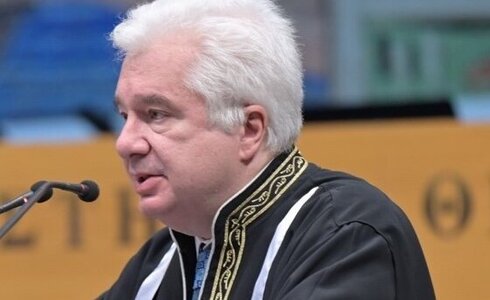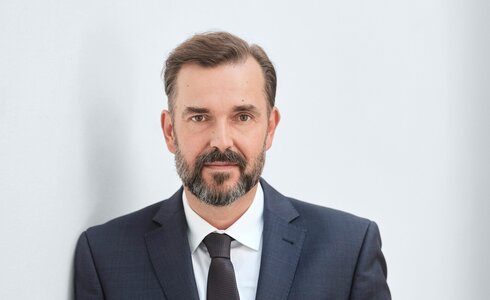Freedom of Expression: Threatened from within Democracy?
Freedom of thought and freedom of expression were originally implemented to ensure the development of democracy and to prevent any abuses of power that would result in the return of tyranny and despotism. While authoritarian regimes continue to restrict these fundamental rights in an attempt to consolidate their rule, new threats still arise from within democratic societies.
Universities and the Socratic Method
When teaching at the Sorbonne last summer semester, I could not help but notice that some students seemed to feel personally offended by one of the texts chosen for the compulsory reading. They repeatedly insisted on the right-wing reputation of the author and insinuated that, by choosing this reading, I must share his convictions.
However, not once did they criticize the author on the grounds of the ideas developed in the reading. Given my views on university — as a place where ideas can freely circulate, where debates take place, and where opposing points of view can be debated in an effort to gain a better understanding of the subject of discussion (i.e., the Socratic Method) — my students’ attitude left me troubled.
A glimpse at history
Originally, the right to freedom of expression was obtained and legally implemented during the French and American Revolutions. Considering historic and contemporary abuses, the Declaration of Human and Civic Rights and the First Amendment of the American Constitution both established freedom of speech as one of, “the most precious rights of man,” worthy of protection against its opponents, namely the dominant classes.
The Montagnard’s Declaration of the Rights of Man and Citizen of 1793 even stated it explicitly: “The necessity of enunciating these rights supposes either the presence or the fresh recollection of despotism.”
Freedom of expression was seen at the time as a necessary condition to ensure the establishment of a democratic state. Only informed citizens could be virtuous citizens. Conflicts between different political options should enable citizens to make an informed choice. Protecting freedom of speech was also seen as the only means to prevent either elites or the state from manipulating the people and/or confiscating their voice. Freedom of expression should also enable minorities to speak up and be heard by political decision makers.
Democratic values
This explains why through present-day, legislation concerning the freedom of expression protects political speech first and foremost. The freedom of press and media, as it is closely linked to topics of public interest, also plays a crucial role in the promotion of democratic values and virtues. The important contribution of the press was well understood by historical elites as well: In nineteenth century France, for example, every attempt to restore monarchical power started by restricting the freedom of the press.
Over the centuries, other types of expression that might not be directly political proved themselves to be as essential as political speech to democratic development. Academic freedom and literary freedom are both vital to the progress and the well-being of democratic society. The attacks that both types of expression suffer, especially under authoritarian and totalitarian regimes — for example, the burning of books in Nazi Germany — underscore the significance of threat they constitute for those looking to subjugate the people.
Democratic recession
In the light of recent trends towards the recession or backsliding of democracy, statal attacks on all three types of freedom (press, science, and literature) are becoming increasingly frequent. To name just a few examples, we could cite the internet censorship of countries like Iran, North Korea, and China that prevent millions of people from accessing online information and platforms.
We could address recent shutdowns of universities and other institutions of higher education in Russia. On the other hand, we could also praise figures like Salman Rushdie for a lifetime fighting in favor of the freedom of literature.
While the increasing number of attacks on freedom of expression in authoritarian countries is alarming and needs to be addressed (after all, democratic countries need to provide protection for those persecuted and silenced), these attacks are not fundamentally new. If we want to effectively fight the trend towards democratic recession and avoid other countries joining the camp of these authoritarian states, recent developments in democratic countries themselves need to be on the agenda as well — first and foremost, the fact that freedom of expression is no longer questioned, restricted, or threatened by statal agencies there, but by social mores and society itself.
George Orwell had foreseen these developments when stating in 1946: “Any writer or journalist who wants to retain his integrity finds himself thwarted by the general drift of society rather than by active persecution.” Even before him, Alexis de Tocqueville anticipated that modern tyranny would no longer require coercive measures and could rely solely on social pressures in order to ensure the conformism of its subjects.
And indeed, the three types of liberty previously mentioned are being fundamentally challenged as of late by developments linked to societal changes and the way individuals interact with each other (and with society as a whole).
Academic freedom under constant attack
Scientific freedom itself faces unique challenges — some concern the internal functioning of universities and research institutions, while others reflect the increasing distrust that science has been facing in recent years. In order to ensure academic freedom, it is essential to provide a stable working environment (i.e., tenure) as well as funding that is not linked to economic requirements (i.e., a return on investment). With universities increasingly subject to free market pressures, these conditions are being met for fewer and fewer people working in academia.
On the other hand, the so-called “cancel culture” trend originating in US universities threatens to silence certain personalities for behaviors and views that are no longer publicly accepted. Instead of relying on the judicial system, people are taking law into their own hands by deciding who is worth “existence,” and who is not.
Reports have found that in German universities, for example, there are research subjects that have zero chance of being funded because of their political explosiveness. At academic events, scholars defending the wrong political opinions are excluded, while in classrooms, professors are being judged not for their scientific competence but for their positions on sensitive political issues.
Outside of academia, science is under constant attack, as are other institutions seen as representative of the scientific and political establishment, and these critiques must be taken seriously. For example, freedom of press is obviously being threatened by the centralization of media outlets into the hands of a few stakeholders.
The alternatives to the classic “gatekeepers” of information however, the various social media platforms, come with their own set of problems. Filter bubbles, the polarization and brutalization of discourse, and the impossibility of differentiating verified information from mere opinion are some of the main flaws inherent to communication processes on the web.
Three essential criteria
Susie Alegre cites three core requirements that allow for freedom of thought and opinion in a digital age: The ability to keep your thoughts private, the freedom from manipulation of your thoughts, and the fact that no one can be penalized for their thoughts alone. These fundamental rights are today being challenged by the algorithms used by the big data companies.
By deciding which content users are exposed to, these algorithms are interfering with the very capacity of individuals to form an opinion.
Outside of authoritarian countries, the freedom of literature may seem like the least under siege among the three types of liberty. If we believe George Orwell however, prose can only thrive in a free environment, as “imagination, like certain wild animals, will not breed in captivity.”
When writing the Declaration of Human and Civic Rights in 1789, the National Constitutional Assembly knew what was at stake. Freedom of expression needs the protection of the law, but it also needs the unconditional support of those in favor of democracy. So, as a teacher, I can only take a firm stand in underlining time and time again the importance of diversity of thought, as well as that of expression, in no matter what form.

Université Paris I Panthéon-Sorbonne
Carmen Grabuschnig holds a Ph.D. degree in sociology from the École Pratique des Hautes Études in Paris, and she is a lecturer in the political science department of the Université Paris I Panthéon-Sorbonne. Her research topics include totalitarian and authoritarian regimes, resistance movements and youth groups, but foremost freedom as a prerequisite for human development.


